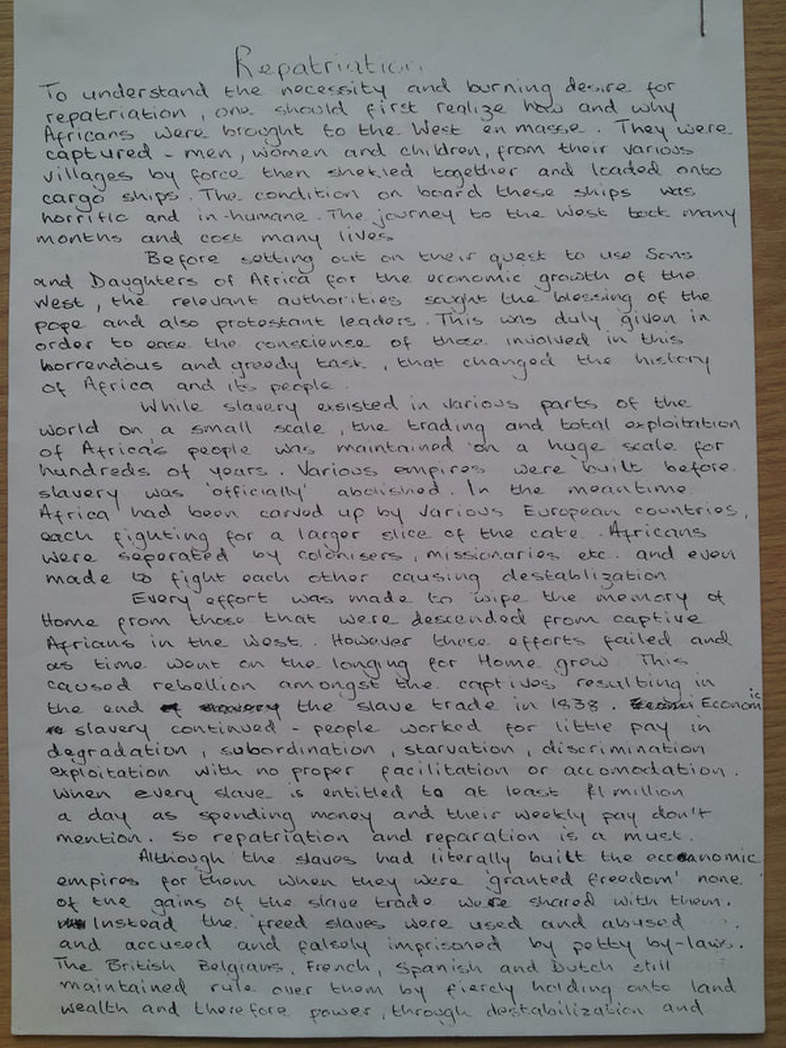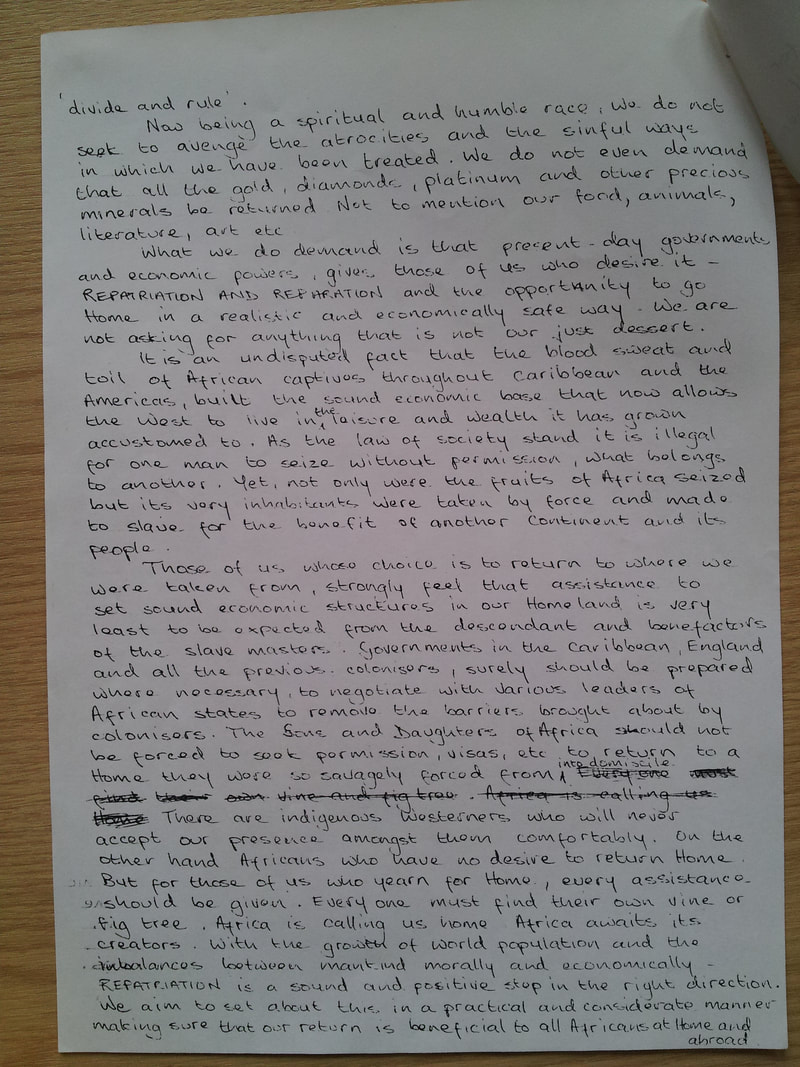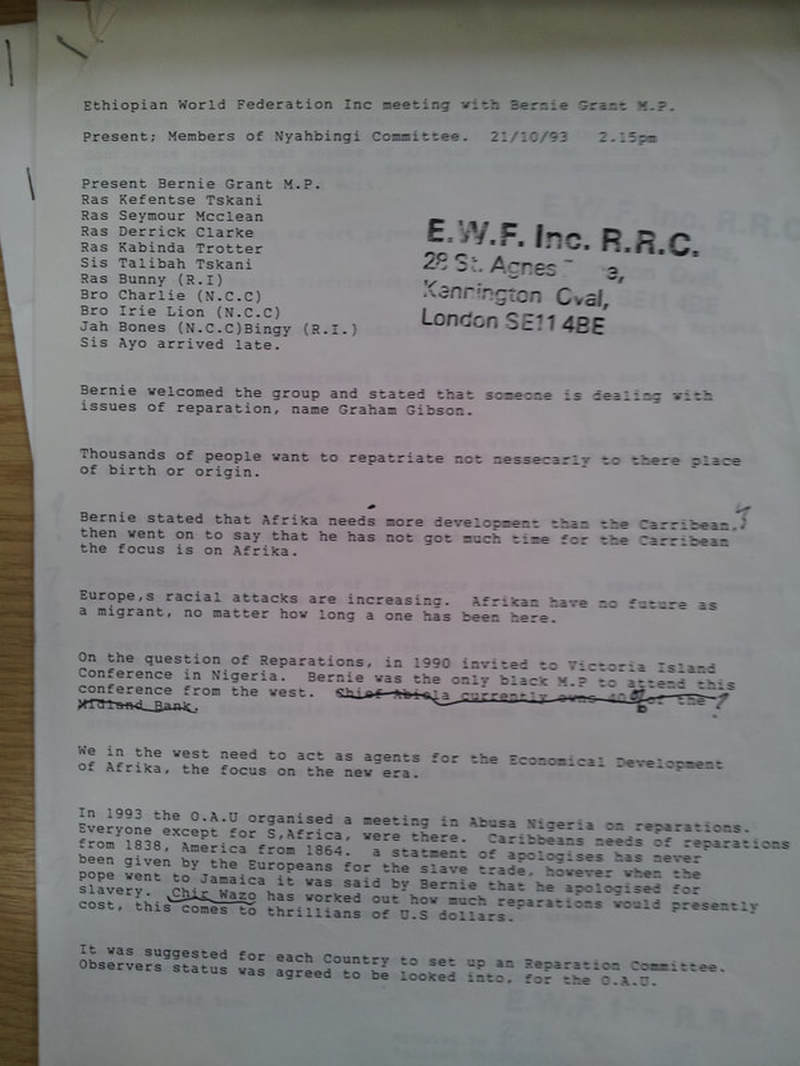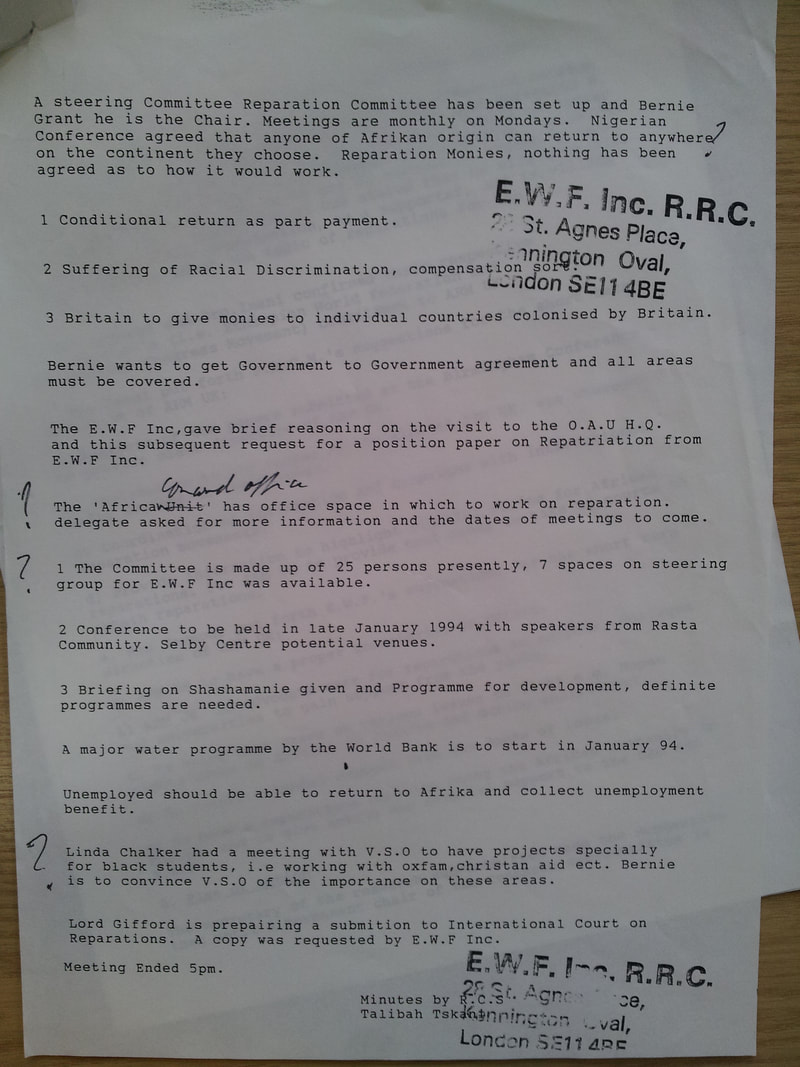Reparations and Repatriation
Bernie Grant and Rastafari
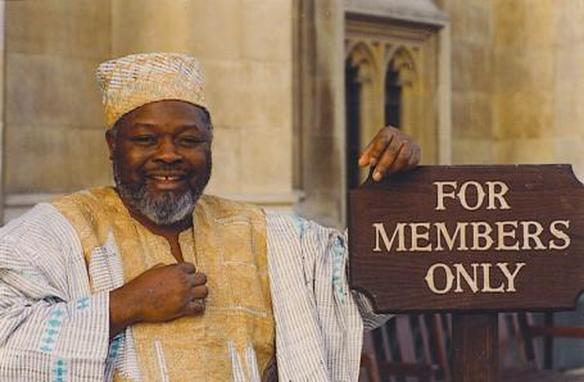
Born in Guyana, Bernie Grant came to prominence in British politics as leader of London's Borough of Haringey in 1985. Two years later in the general election, Bernie became one of a trio of Britain's first Black MPs alongside Diane Abbott and Paul Boateng. Bernie distinguished himself for his commitment to the reparations agenda. In 1990 he addressed the first conference on Reparations for Africa, held in Lagos Nigeria. Three years later he launched and chaired the African Reparations Movement UK.
Speech in Birmingham, 1993, on the African Reparations Movement UK
Our agenda cannot simply be that we are going and confronting the British National Party [the Far Right] in Handsworth or in Tower Hamlets or anywhere else. we have to set a different agenda.
What I am saying to you, is that as part of that agenda we have to look to the worldwide situation confronting people of African origin. We have to look at what is happening in Africa ... We have to see where we are going for the future and I am saying, and I want anyone to get up and challenge this - that the future of Black people here depends on the future of Black people there, and around the world.
When people see us on T.V., they see people starving and they see people fighting .. and they think of [all] black people in that way. So what are we going to do about it? Well, I would respectfully suggest to you that one of the things that we consider most seriously is the whole question of Reparations...
What I am saying to you, is that as part of that agenda we have to look to the worldwide situation confronting people of African origin. We have to look at what is happening in Africa ... We have to see where we are going for the future and I am saying, and I want anyone to get up and challenge this - that the future of Black people here depends on the future of Black people there, and around the world.
When people see us on T.V., they see people starving and they see people fighting .. and they think of [all] black people in that way. So what are we going to do about it? Well, I would respectfully suggest to you that one of the things that we consider most seriously is the whole question of Reparations...
Bernie's personal and political linking of the injustices faced by Black peoples in Britain to the injustices faced by peoples on the African continent resonated strongly with the Pan-Africanism of Rastafari. It is not suprising, then, that Bernie entered into dialogue with the Rastafari movement over the pursuit of the reparations agenda.
The communication with Bernie is important for two reasons. Firstly, it demonstrates that the Rastafari movement have had to carefully explain to a wider Black activist movement the meaning of repatriation as a fundamental element of reparation. Consider this letter to Bernie written by the Nyahbinghi International Project:
The communication with Bernie is important for two reasons. Firstly, it demonstrates that the Rastafari movement have had to carefully explain to a wider Black activist movement the meaning of repatriation as a fundamental element of reparation. Consider this letter to Bernie written by the Nyahbinghi International Project:
Secondly, the communication demonstrates the consistent efforts by the Rastafari movement in Britain to pursue their aims at the higher level of politics. In Bernie Grant MP, they found a rare kindred spirit who had developed substantial political links on the African continent. Consider this minute of a meeting between Bernie and the Ethiopian World Federation (including Ras Seymour Mclean):
